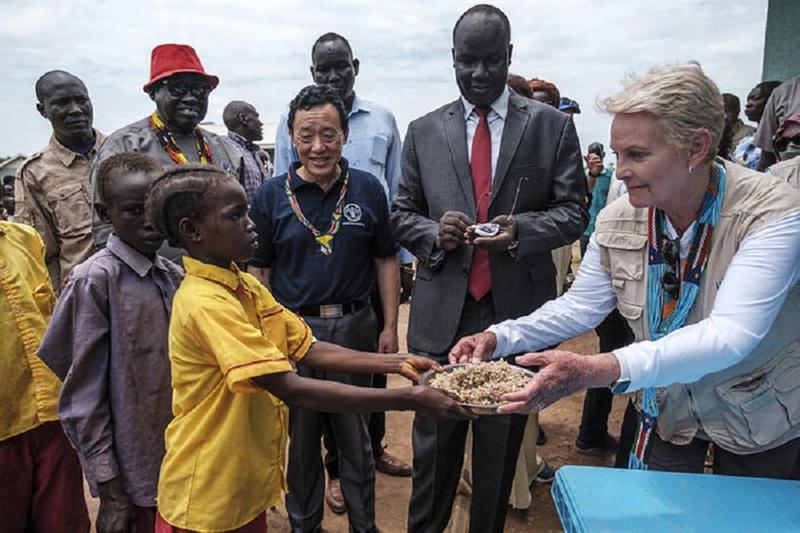
The heads of UN food and agriculture agencies wrapped up a three-day visit to South Sudan Tuesday, calling for increased investments in the country to avoid a catastrophic food crisis.

The heads of the UN Food and Agriculture Organization (FAO), the International Fund for Agricultural Development (IFAD) and the World Food Program (WFP), warned that the cost of inaction in addressing South Sudan’s complex food, climate, and insecurity crises will be felt in the loss of lives, livelihoods and futures for millions of people across the young nation.
Qu Dongyu, FAO director-general, said South Sudan has the potential to be the breadbasket of East Africa, but the climate crisis, poor agriculture infrastructure, instability, and economic shocks continue to disrupt agricultural and livestock productivity and food availability. “Investments and enabling policies that will improve on longer-term food security, resilience and climate adaptation are urgently needed,” Qu said in a joint statement issued in Juba, the capital of South Sudan.
The three heads of the UN agencies including president of IFAD Alvaro Lario, and the executive director of WFP Cindy McCain visited communities who are grappling with the effects of severe weather events, which, coupled with a lack of infrastructure, are worsening the country’s humanitarian crisis, threatening farms and agro-pastoral livelihoods, and displacing communities.
Lario said South Sudan is a young country, full of potential, but right now families are relying on subsistence agriculture. According to Lario, with only 4 percent of farmland being cultivated, and 80 percent of its young people living in rural areas, there is an enormous opportunity to grow and develop agriculture and the food sector more generally.
“To do this we need to mobilize massive investments and implement best practices to combat food insecurity and adapt to climate change. This will also greatly improve rural employment. But we need to act now,” he added.
McCain said conflict, climate change, and soaring costs in South Sudan are causing some of the highest levels of hunger in the world.
“But just handing out food isn’t the solution. We must break the cycle and empower communities to plant the seeds of hope, opportunity, and economic development. With peace and stability, the potential of South Sudan is incredible,” McCain said.
“However, WFP doesn’t even have the resources needed to feed those who are hungry today – we need the world to step up.”
The UN said the humanitarian emergency in South Sudan is caused by a combination of conflict, climate, and soaring food and fuel prices.
And the situation is compounded by fighting in Sudan which has led to more than 190,000 people fleeing across the border to South Sudan, further straining already scarce resources.
During the visit, a new five-year partnership agreement was also signed to renew inter-agency cooperation which will see the agencies deepen their collaboration and coordination at global, regional and country levels to support the achievement of Sustainable Development Goal 2, Zero Hunger.
Under the agreement, the three Rome-based agencies will work on agrifood systems transformation, nutrition, gender equality and women’s empowerment, resilience-building youth, and climate change.